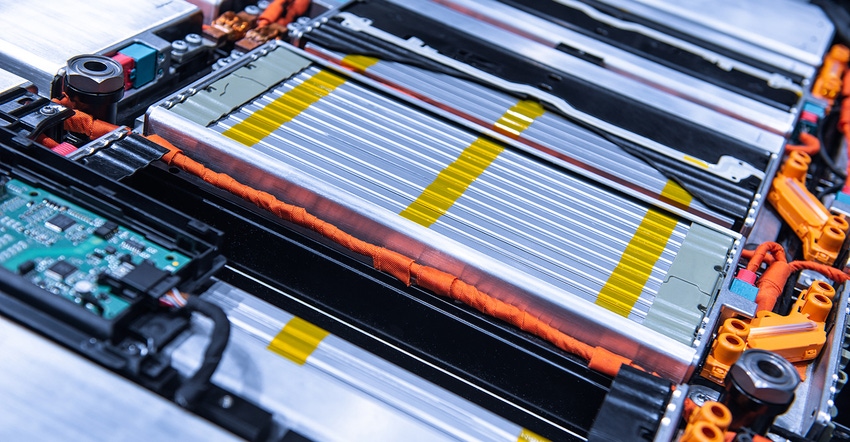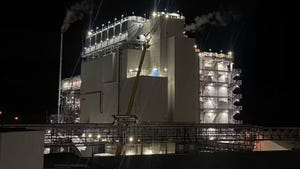Groupe Renault, Veolia, and Solvay Join Forces to Recycle Metals from End-of-Life EV Batteries
The number of electric vehicles is expected to grow from 10 million in 2020 to more than 100 million by 2030 worldwide. Ensuring stable access to responsibly sourced battery materials is deemed a strategic challenge.
March 18, 2021

Responding to what has become the next big challenge of EVs, Groupe Renault, Veolia, and Solvay have joined forces to recycle end-of-life EV batteries. The partnership will enable the circular economy of EV battery metals in Europe through closed-loop recycling, thus capturing the value of the metals. With the number of electric vehicles on the road expected to grow from 10 million in 2020 to more than 100 million by 2030 worldwide, ensuring stable access to responsibly sourced battery materials is a strategic challenge, said the partners.
The consortium first formed by Veolia and Solvay in September 2020 optimizes Veolia’s 10 years of experience in lithium-ion battery dismantling and recycling via a hydro-metallurgical process and Solvay’s expertise in the chemical extraction of battery metals. The addition of Groupe Renault, with its experience in the circular economy and life cycle of EV batteries, makes this a “highly complementary partnership” benefitting from each company’s expertise.
Ilham Kadri, CEO of Solvay Group, commented: “This consortium is a great example of partnership in the value chain that makes the circular economy come true for battery metals. We are thrilled to have Groupe Renault join the consortium and view them as a strategic partner in closing the loop of circularity, bringing input material for recycling and re-injecting purified metals into the battery cycle.”
The three partners seek to establish a secure and sustainable supply source for strategic battery metals, such as cobalt, nickel, and lithium. The companies plan to achieve this goal by leveraging their respective expertise at each step of the value chain — from collection of end-of-life electric vehicle batteries to dismantlement, metal extraction, and purification — and by enhancing existing mechanical and hydro-metallurgical battery recycling processes.
Through Solvay and Veolia’s joint innovative technology, strategic metals that were previously recovered in a form only suitable for metallurgical applications will be extracted and purified into high-purity metals ready to be reused in new batteries. The closed loop reduces the environmental footprint of future EV batteries.
“Groupe Renault has a holistic approach to the battery life cycle: Repairing first-life batteries to extend their automotive lifespan, developing second-life applications for energy storage, and setting up a system for collecting and recycling batteries,” said Luca de Meo, CEO of Renault. “We are proud to reinforce our commitment to battery recycling by joining forces with Veolia and Solvay. We aim at implementing innovative and low-carbon battery recycling solutions to pave the way to sustainable sourcing for strategic battery materials as electric mobility is growing. Together we will leverage our strong presence on the entire EV value chain in Europe to take a competitive position in the battery materials market and generate value beyond our core business.”
Antoine Frérot, CEO of Veolia, commented: “Given the magnitude of the environmental issues the world is facing, ecological transformation is an urgent need. With Groupe Renault joining Veolia and Solvay, we are collectively taking a step further toward closed-loop solutions to preserve natural resources. This shows how companies working together can think up and implement new solutions that both better our environment and renew our economies.”
The three partners are currently engaged in an experimental phase, which involves setting up a pre-industrial demonstration plant in France with the capability to extract and purify end-of-life EV battery metals.
About the Author(s)
You May Also Like




